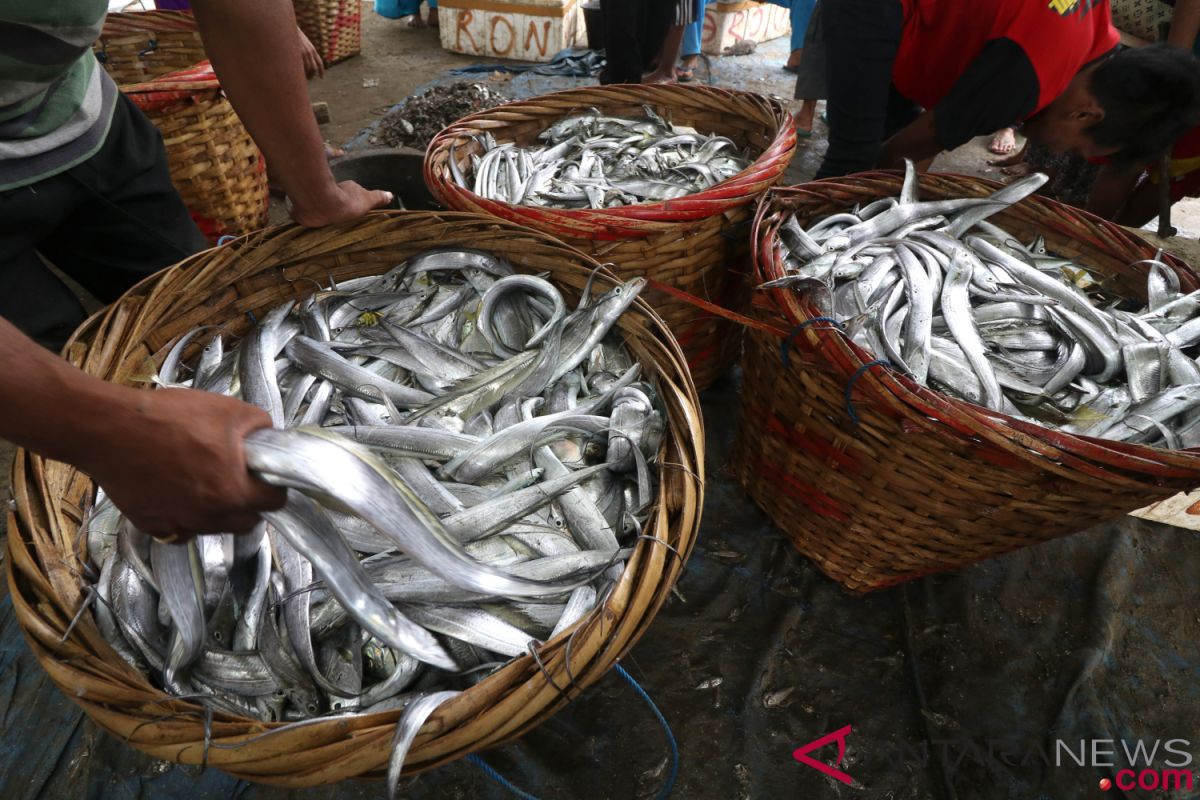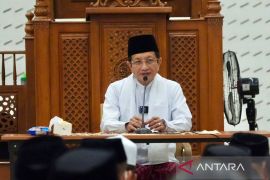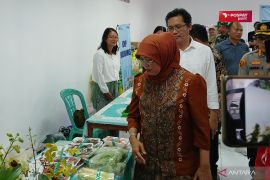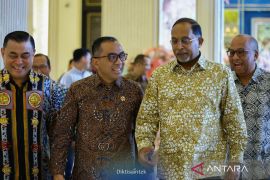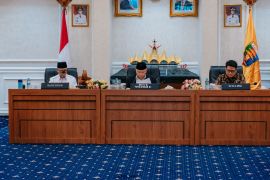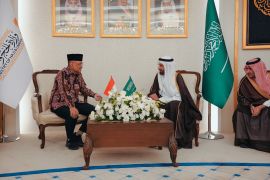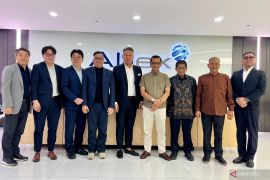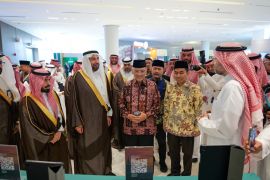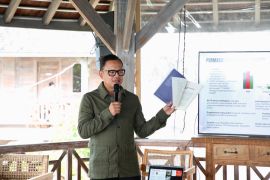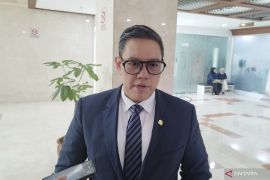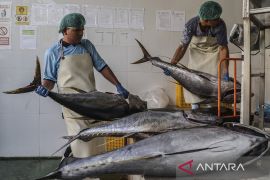The reason is overfishing that has been long practiced depleting fish stocks in many fishing grounds in the world, it said.
Director General of Aquaculture at the Maritime Affairs and Fisheries Ministry (KKP) Slamet Soebjakto said fish farming has expanded rapidly in the world including in Indonesia over the past five years.
Slamet Soebjakto quoting data at KKP, said the country`s production of farmed fish grew 6.69 percent annually in the five year period ending in 2017.
He said in 2017, the country`s production of aquaculture reached 17,217,701 tons or an increase of 7.59 percent from 2016.
Meanwhile, land for fish farming in the past five years expanded 1.94 percent annually on the average.
Slamet said the government is interested not only in the expansion of the fish farming industry, but it also is concerned with the food security both for domestic consumption and for exports.
The KKP is responsible for the availability of supply of foods but it is more concerned with the safety of the food for human consumption as regulated in the Law No 18 of 2012 on food security.
He said KKP is committed to complying with the Ministerial regulation KP No 39 of 2015 on control of residue of fish medicines, chemicals and contaminant.
He said data from monitoring of residue showed that since 2010, non compliant (NC) is declining, even data until the last quarter of 2018, showed that there was no residue detected in sample or non compliant.
The result of the monitoring of residue has increased the satisfaction of buyers of fishery products from Indonesia.
It is proved that until now Indonesia has never received report or letter of Rapid Alert System For Food and Feed (RASFF) from foreign buyers particularly related to pollution or residue in the country`s products of aquaculture exported to other countries.
Industry 4.0
Slamet Soebjakto said shrimp is one of the aquaculture commodities ready to compete in the era of fourth industrial revolution.
Addressing the opening of Aquatic Asia 2018 here on Tuesday (28/11), Slamet said a number of shrimp farms have applied good and sustainable practice of aquaculture. In addition, shrimp ponds have also met the "biosecurity"system or standards that the commodity is free from disease.
He said application of sustainable aquaculture farming becomes part of industrial transformation in industry 4.0.
In addition to shrimps, other export commodity among aquaculture ready for transformation in Industry 4.0 include white tuna, the grouper, and seaweed.
He said transformation of aquaculture business to become part of Industry 4.0 is expected to give the best solution especially in developing a more efficient and measured production system from the technical and managerial aspect as well as from the aspect of strengthening human resources and business management.
KKP has also issued KUSUKA card by using online application system and it has been integrated with the application of marine and fishery data, application of system guaranteeing quality and food security (CPIB, CBIB, CPPIB) and application of one digitalization code of industrial player by the Central Bureau of Statistics (BPS) which enables to get access for related sectors.
Earlier, Slamet said demand for fish would continue to grow in the world including Indonesia that it is important to expand business in aquaculture in the country.
Currently the population of Indonesia reached 265 million and is it predicted to grow to 300 million in 2030.
Meanwhile, Indonesia`s fish consumption per capita has continued to rise from 43 kg in 2017 to an estimated 50 kg in 2019. Demand for fish therefore, would continue to increase, he said.
The appetite of many people in the world has also changed from the meat of non aquatic creature such as beef to fish, which is healthier, he said.
Maritime Affairs and Fisheries Minister Susi Pudjiastuti said Indonesian business players should take advantage from the increase in the demand for fish.
Susi Pudjiastuti said the world has in the past 30 years relied more on fish farming for side dish everyday and the demand for fish has continued to increase with the growing population.
She said ahead the world concern is more about food security than ideology and politics.
She called for application of sustainable aquaculture in the marine sector to guarantee success in fishery business.
She said fish farmers should begin to grow mangrove trees in their fish ponds to prevent abrasion and to filter the water.
Green Economy
KKP has long suggested and introduce blue economy concept to exploit aquaculture potentials or sustainable cultivation of waters territory, which is also potential to create new jobs.
Slamet said through the concept of "blue economy" aquaculture, many jobs could be created to reduce or eliminate poverty especially in rural area especially in coastal areas as it is now more difficult to create jobs from conventional economic system.
He said green economic system would drive more efficient management of aquaculture through creativity and technological innovation to boost sustainable, efficient and environmentally friendly industrialization in the marine and fishery sector.
Thereby application of the green economy concept would also answer the challenges in vulnerability of food security with the increase in fish production.
Slamet said the challenge faced by aquaculture at present is how to meet the world food requirement amid the decline the environmental support and global climate change.
Based on FAO estimate, the world population would swell to 9.7 billion in 2050. The growing population would push up demand for food. Sustainability in food production, therefore, is crucial.
FAO, however, predicted that by 2030, the contribution of aquaculture to fishery production in the world would reach 58 percent.
Therefore, aquaculture has to be expanded that the country could rely on it for fish supply and to contribute to making the country self sufficient in food. Aquaculture has to contribute more to the national food security that the fishery sector could serve as the country`s economic backbone.
Editing by Albert Saragih, Bustanudin
Reporter: Antara
Editor: Suharto
Copyright © ANTARA 2018
